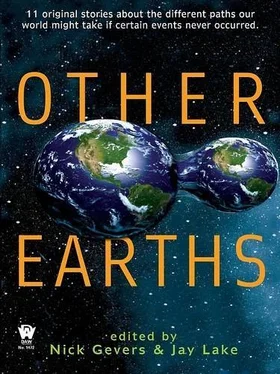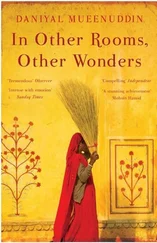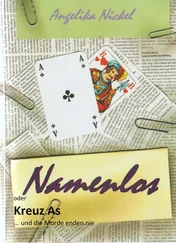“Perhaps we can make it last a little longer,” Percy said.
Of course I knew what he meant.
“I’ll need light,” I said.
The fierce, hot light of the fading day.
Ephraim was anxious to help, once Percy explained the notion to him. He threw open the barracks door. He took down the wood he had tacked over the south-facing windows. There were still iron bars in the window frames.
In the corners the light was not adequate despite our best efforts. Ephraim said he had a sheet of polished tin he used for a mirror, which might help reflect the sunlight in. He went to his encampment to get it. By that time he trusted us enough to leave us alone for a short time.
Once again I suggested escape, but Percy refused to leave. So I kept about my work.
There were only so many exposures I could make, and I wanted the names to be legible. In the end I could not capture everything. But I did my best.
Ephraim told us about the end of Pilgassi Acres. He had been nearby, hidden half starving in a grove of dwarf pines, when he heard the initial volley of gunshots. It was the first of many over the several hours that followed. Gunfire in waves, and then the cries of the dying. By that sound he knew he would never see his son Jordan again.
Trenches were dug in the ground. Smoke from the chimneys lay over the low country for days. But the owners had been hasty to finish their work, Ephraim said. They had not bothered to burn the empty barracks before they rode off in their trucks and carriages.
Ever since that time Ephraim had sheltered in the barn of a poor white farmer who was sympathetic to him. Ephraim trapped game in exchange for this modest shelter. Eventually the farmer lent him his rifle so that Ephraim could bring back an occasional deer as well as rabbits and birds. The farmer didn’t talk much, Ephraim said, but there were age-browned copies of Garrison’s Liberator stored in the barn; and Ephraim read these with interest, and improved his vocabulary and his understanding of the world.
Hardly anyone came up to Pilgassi Acres nowadays except hunters following game trails. He scared them off with his rifle if they got too close to Jordan’s barracks.
There was no point leaving the barracks after dark, since we could not travel in the carriage until sunrise. Percy’s condition worsened during the night. He came down with a fever, and as he shivered, his wound began to seep. I made him as comfortable as possible with blankets from the carriage, and Ephraim brought him water in a cracked clay jug.
Percy was lucid, but his ideas began to run in whimsical directions as midnight passed. He insisted that I take Mrs. Stowe’s letter from where he kept it in his satchel and read it aloud by lamplight. It was this letter, he said, that had been the genesis of the book he was writing now, about the three million. He wanted to know what Ephraim would make of it.
I kept my voice neutral as I read, so that Mrs. Stowe’s stark words might speak for themselves.
“That is a decent white woman,” Ephraim said when he had heard the letter and given it some thought. “A Christian woman. She reminds me of the woman that taught me and Jordan to read. But I don’t know what she’s so troubled about, Mr. Camber. This idea there was no war. I suppose there wasn’t, if by war you mean the children of white men fighting the children of white men. But, sir, I have seen the guns, sir, and I have seen them used, sir, all my life— all my life. And in my father’s time and before him. Isn’t that war? And if it is war, how can she say war was avoided? There were many casualties, sir, though their names are not generally recorded; many graves, though not marked; and many battlefields, though not admitted to the history books.”
“I will pass that thought on to Mrs. Stowe,” Percy whispered, smiling in his discomfort, “although she’s very old now and might not live to receive it.”
And I decided I would pass it on to Elsebeth, my daughter.
I packed up my gear very carefully, come morning.
This is Jordan’s name , I imagined myself telling Elsie, pointing to a picture in a book, the book Percy Camber would write.
This photograph, I would tell her, represents light cast in a dark place. Like an old cellar gone musty for lack of sun. Sunlight has a cleansing property, I would tell her. See: I caught a little of it here.
I supposed there was enough of her grandmother in her that Elsebeth might understand.
I began to feel hopeful about the prospect.
Ephraim was less talkative in the morning light. I helped poor shivering Percy into the carriage. I told Ephraim my mother had once published a poem in the Liberator , years ago. I couldn’t remember which issue.
“I may not have seen that number,” Ephraim said.
“But I’m sure it was a fine poem.”
I drove Percy to the doctor in Crib Lake. The doctor was an old man with pinch-nose glasses and dirty fingernails. I told him I had shot my servant accidentally, while hunting. The doctor said he did not usually work on colored men, but an extra ten dollars on top of his fee changed his mind.
He told me there was a good chance Percy would pull through, if the fever didn’t worsen.
I thanked him, and I went off to buy myself a drink.
THE GOAT VARIATIONS
Jeff VanderMeer
It would have been hot and humid in September in that city, and the Secret Service would have gone in first, before him, to scan for hostile minds, even though it was just a middle school in a county he’d won in the elections, far away from the fighting. He would have emerged from the third black armored vehicle, blinking and looking bewildered as he got his bearings in the sudden sunlight. His aide and the personal bodyguards, who had grown up protecting him, would have surrounded him by his first step onto the asphalt of the driveway. They would have entered the school through the front, stopping under the sign for photos and a few words with the principal, the television cameras recording it all from a safe distance.
He would already be thinking past the event, to the next, and how to prop up sagging public approval ratings, due both to the conflict and his recent “indecision,” which he knew was more analogous to “sickness.” He would be thinking about, or around, the secret cavern beneath the Pentagon and the pale, almost grublike face of the adept in his tank. He would already be thinking about the machine.
By the end of the photo op, the sweat itches on his forehead, trickles into his eyes, burns sour in his mouth, but he has to ignore it for the cameras. He’s turning a new word he learned from a Czech diplomat over and over in his mind. Ossuary. A word that sounds free and soaring but just means a pile of skulls. The latest satellite photos from the battlefield states of Kansas, Nebraska, and Idaho make him think of the word. The evangelicals have been eschewing god-missiles for more personal methods of vengeance, even as they tie down federal armies in an endless guerilla war. Sometimes he feels as though he’s presiding over a pile of skulls.
The smile on his face has frozen into a rictus as he realizes there’s something wrong with the sun; there’s a red dot in its center, and it’s eating away at the yellow, bringing a hint of green with it. He can tell he’s the only one who can see it, can sense the pulsing, nervous worry on the face of his aide.
He almost says “ossuary” aloud, but then, as sun-spots wander across his eyes, they are bringing him down a corridor to the classroom where he will meet with the students and tell them a story. They walk past the open doors to the cafeteria—row on row of sagging wooden tables propped up by rusted metal legs; and he experiences a flare of anger. Why this school, with the infrastructure crumbling away? The overpowering stale smell of macaroni and cheese and meatloaf nauseates him.
Читать дальше












